|
Depending on your unique case, you may be a candidate for non-surgical periodontal treatment. However, these procedures do have limitations. When non-surgical treatment does not achieve optimal periodontal health, your periodontist may recommend gum surgery.
Scaling and Root Planing In scaling and root planing, your periodontist will perform a deep cleaning of your tooth root surfaces. First, your periodontist will scale beneath the gumline to remove plaque and other bacterial toxins from periodontal pockets. Root planing allows your periodontist to smooth the tooth root to prevent future plaque or toxins from adhering. Many patients do not require additional treatment after scaling and root planing. However, the majority of patients will require ongoing maintenance therapy to sustain periodontal health. Laser Treatment Lasers can be used to treat periodontal disease. Current controlled studies have shown that similar results have been found with laser treatment compared to specific other non-surgical treatment options, including scaling and root planing alone. Each laser has different wavelengths and power levels that can be used safely during different periodontal procedures. However, damage to periodontal tissues can result if a laser with an inappropriate wavelength and/or power level is used during a periodontal procedure. Tray Delivery Systems A tray delivery system consists of a custom-fit tray made from impressions of the patient’s mouth. Patients use the tray at home to deliver medications that have been prescribed by their dental professional. Tray delivery systems were cleared by the Food and Drug Administration (FDA) since they are similar to fluoride trays traditionally used to prevent tooth decay. However, the FDA clearance process did not determine that any specific medication delivered via tray delivery systems has been proven to be a safe or effective way to treat gum disease. When determining the best course of treatment for your specific case, be sure to discuss the pros and cons of all available treatment options with your dental professional.
0 Comments
Dr. M. George Ayad voted Best Periodontist by Bergen Magazine and NJ Monthly wants his patients to know that there are several studies have shown a link between periodontal disease and other systemic diseases. While a causal relationship has not been conclusively established, research suggest that periodontal disease may contribute to the progression of other diseases.
Diabetes People with diabetes are more likely to have periodontal disease than people without diabetes, probably because people with diabetes are more susceptible to contracting infections. In fact, periodontal disease is often considered a complication of diabetes. Those who don’t have their diabetes under control are especially at risk. Research has suggested that the relationship between diabetes and periodontal disease goes both ways: periodontal disease may also make it more difficult for people who have diabetes to control their blood sugar, increasing the risk for diabetic complications. Heart Disease Several studies have shown that periodontal disease may increase the risk of heart disease. Scientists believe that inflammation caused by periodontal disease may be responsible for the association. Periodontal disease can also exacerbate existing heart conditions. Patients at risk for infective endocarditis may require antibiotics prior to dental procedures. Your periodontist and cardiologist will be able to determine if your heart condition requires use of antibiotics prior to dental procedures. Respiratory Disease Research has found that bacteria associated with periodontal disease can be aspirated into the lungs and contribute to respiratory diseases such as pneumonia. Cancer Researchers found that men with gum disease were 49% more likely to develop kidney cancer, 54% more likely to develop pancreatic cancer, and 30% more likely to develop blood cancers. Alzheimer’s Disease Studies have shown a connection between bacteria associated with periodontal disease and the progression of Alzheimer’s disease. Gum disease bacteria may be able to travel to the brain and contribute to the development of Alzheimer’s disease. Suffering from tooth pain is not fun however understanding the cause and treatment options for resolving the pain is crucial. It is important to schedule a consultation with your periodontist to understand the source of your pain, so that you can pursue the best course of action for your needs.
The third set of molars, wisdom teeth, often emerge in the late teens or early 20s and can cause a great deal of pain and discomfort depending on the size of the patient’s mouth and position of the teeth. Impacted or partially erupted wisdom teeth can result in a number of problems including pain and trauma to nearby teeth and gums. When the teeth emerge properly and are aligned with other teeth, and the surrounding gum tissue is healthy, wisdom teeth can be left in place. Unfortunately, in most cases, wisdom tooth extraction is necessary when the teeth are restricted from suitably emerging within the mouth. Wisdom teeth can erupt in a number of ways including growing in sideways, only partially protruding from the gum, and in some cases, remaining below the gum and bone, causing pain and pressure in the mouth. Although there are a number of reasons why patients experience pain, the most common symptoms associated with wisdom teeth removal are continued wisdom tooth pain, stiffness of the jaw, sensitive gums in the area where wisdom teeth are found, repeated tooth infections, tooth decay and damage, or shifting and or/crowding of the teeth. When wisdom teeth grow in, they can fully emerge, causing an overcrowding of the teeth, partially erupt potentially causing infection, or grow in sideways below the gums, also known as impacted wisdom teeth, causing the teeth to shift and misalign. For some patients, the teeth may not cause any harm or complications and in some cases can be left untouched. For other patients, wisdom teeth emerging can be a painful process that can cause serious complications. If you believe you need your wisdom teeth removed contact us to schedule a visit to learn if wisdom teeth removal is necessary for you. Article written by Written by Zawn Villines on CareDash.com Time, gum disease, low access to dental care, and lifestyle habits can destroy teeth and gums. About 178 million Americans are missing at least one tooth, and 40 million are missing all of their teeth. Missing teeth can make chewing difficult, and they can affect a person’s appearance and self-esteem. They can also change the structure of the jaw. For centuries, people with missing teeth had to resort to dentures. The advent of bridges offered a more permanent solution. Both strategies left people missing teeth with holes in their gums where the roots of teeth might otherwise be. Dental implants fill these holes with permanent fake teeth that do not decay like real teeth. They boast a 98% success rate, making them a good option for many people who are missing teeth or struggling with jaw issues related to lost teeth. What Are Dental Implants?Dental implants replace missing teeth with permanent fake teeth that look just like real teeth. Unlike dentures or bridges, implants are anchored into the gums by a titanium screw. This screw acts like the natural tooth root. By replacing the missing tooth with a synthetic tooth and root, it may be possible to prevent surrounding bone structures from changing with time. Doing so can preserve the structure of the face, prevent jaw pain, and even help with issues such as grinding teeth. For most people, however, the primary benefit of dental implants is that they replace missing teeth, restoring their appearance and making it easier to chew. “Dental implants are not susceptible to decay but are susceptible to periodontal disease,” said Dr. Ayad. “They need the same home care as natural teeth, and also professionally maintained at regular dental visits, and checked with x-rays annually.” The Process of Getting Dental ImplantsThe process of getting dental implants begins with a comprehensive evaluation and treatment plan with your specialized dentist, such as an oral surgeon, periodontist, or prosthodontist. “Preparation has several steps,” said M. George Ayad, DDS, a Diplomate for the American Board of Periodontology and periodontist in Hackensack, NJ. “First a review of medical history to insure the patients' medical conditions or medications don't create a contraindication to routine dental implant placement.” Your medical history may also affect the type of anesthesia the doctor uses, so it’s important to disclose everything. “Next, a CT scan of the jaw bone to determine if there's adequate bone volume or need for augmentation prior to placement,” said Dr. Ayad. “Finally and probably most importantly, a consultation with the restoring dentist to determine the position to place the implant(s) to receive the crown(s) that works best with the patients' bite.” Your dentist will discuss with you whether any teeth need to be removed and which procedures must be done before the implant surgery. For instance, some people may need to remove old dental crowns, while others may need treatment for chronic gum disease. If you need a bone graft, this procedure will be done before surgery. It can take several months for the bone graft to heal. On the day of surgery, you’ll need to avoid food and drink. Depending on the method of anesthesia you choose, you’ll either be awake but unaware and in no pain, or totally unconscious. Your surgeon will make a cut into your gums to place the dental implant. When you wake up, there will still be a gap where the tooth was. The doctor can place a temporary denture. You’ll get a permanent implant when bone grows around the screw, which can take several weeks or months. After the bone grows in and the permanent implant is put in place, you’ll have new, permanent teeth. “Immediate post-op care includes the use of anti-inflammatory medication, antibiotics, and an antimicrobial rinse as outlined by most accepted protocols,” said Dr. Ayad. After the screw is placed, you may have pain and sensitivity for several days. Some people experience jaw pain or get headaches radiating from the jaw. Medicine provided by your dentist can help control these symptoms. Benefits of Dental ImplantsDental implants make it easier to chew, and they can boost self-esteem by replacing missing teeth. “Success rates are high,” said Dr. Ayad. “Depending on the area of the mouth they're placed, the long term success rates are 92-98% at 35 years. [They are] slightly lower for smokers and some uncontrolled medical conditions.” In addition to the benefits of replacing lost teeth, many people prefer dental implants to bridges and dentures because:
Drawbacks of Dental ImplantsDental implants are implanted directly into the bone underneath the gums. The procedure is more invasive than other options for treating tooth loss, which presents several drawbacks, including:
To be eligible for dental implants, a person must have healthy gums. For people with gingivitis, it may be necessary to undergo many months of treatment first, which can mean spending more time with missing teeth. A patient must also have enough bone to support the dental implant. Those without enough bone must either choose another option or have a bone graft. For many consumers, the most significant drawback of dental implants is the cost. Costs typically range from $3,000 to $6,000 per implant. Insurance plans rarely cover dental care, especially implant dentistry, which is typically classified as a cosmetic procedure. Even people with dental insurance may not have coverage for implants, since most dental insurance programs operate as discount cards, not actual insurance. Affordable Dental ImplantsAffording dental implants can be difficult since most insurance plans won’t cover the implants as this is typically considered an elective procedure. Some providers will, however, cover removal of damaged teeth, x-rays, and other procedures to assess oral health.
“Cost can be a limiting factor especially if dental insurance carriers don't cover some of the cost,” said Dr. Ayad. “That is something that patients may influence by asking their employers to include implants as a covered expense in their dental plans.” Many dental implant providers offer payment plans, which allows you to pay off the implants over time. For people who can’t afford to make upfront payments, this option may be a good one. Some dental implant providers offer discounts for multiple dental implants at once. So if you have several missing or damaged teeth, it’s often best to get them replaced at the same time. You may also be eligible to receive dental implants at a lower cost at a dentistry school, where dental specialists in training can perform the procedure under the supervision of professionals in an oral surgery clinic. However, not everyone is eligible to receive lower-cost dental implants from a dentistry school, and there may be a long wait list. Inquire at a dental school near you to find out if you are eligible and how long the wait might be. If the cost of dental implants is out of reach for you, you may consider cheaper alternatives. Partial dentures and bridges are more affordable and more likely to be covered by dental insurance. It is important to remember that these options are impermanent and tend to require replacement and maintenance. Over time, implants may be the cheaper tooth replacement method depending on what your insurance covers. Dental implants offer a chance to replace missing or broken teeth, often with a single surgery. They can protect bone health, and they may last a lifetime. But they’re not for everyone. Talk to a dentist, prosthodontist, or oral surgeon about whether this option may be right for you. If your teeth and gums are sore, and it's been a while since you've had a visit to the dentist, you might need extensive work done to restore your smile. After your routine exam and cleaning, your general dentist might recommend that you see a periodontist for any necessary specialized oral care. "Periodontal" is a medical term that refers to the gums and other parts of the mouth that surround the teeth. This type of specialist has more training than a general dentist but takes care of many of the same issues. What Is a Periodontist?“Periodontists repair and regenerate damage to supporting structures of the teeth (bone and gum), and replace missing teeth with dental implants,” said M. George Ayad, DDS, a Diplomate for the American Board of Periodontology and periodontist in Hackensack, NJ. Often, seeing a periodontist is the next step after your regular dentist has diagnosed you with advanced dental disease or if you require intervention beyond general dental care. “Periodontists are well informed about the oral and systemic disease associations which have a significant impact on overall health,” said Dr. Ayad. Reasons to See a PeriodontistYou might see a periodontist if your mouth condition is severe or if your medical history is complex. If your gum disease has significantly progressed, for example, your dentist might refer you to a periodontist. Periodontists do many procedures that go beyond what your general dentist is trained to do. For example, you may see a periodontist for a deep cleaning. Other common procedures performed by periodontists include:
The role of a periodontist is similar to that of an oral surgeon. “While there is an overlap of services provided by both, [oral surgeons] typically don't treat infections around diseased natural teeth and dental implants,” said Dr. Ayad. Depending on your location and specific circumstances, a periodontist may be able to provide the expertise you need to achieve optimal oral health. CertificationA periodontist is a dentist with additional training in the specialty of periodontology. To understand the full certification held by your periodontist, you must look first to the training required of a general dentist. To become a dentist, candidates in each state must complete an educational program leading to a DDS or DMD degree. In addition to completing this coursework, prospective dentists must pass written and oral examinations. State-specific requirements may also include a demonstration of good moral character, vaccinations, malpractice insurance, and CPR and/or life support certification. To become a periodontist, dentists must complete an accredited postdoctoral program that lasts from 30 to 36 months. This specialized training is what distinguishes a general dentist from one qualified to practice periodontology. It is, therefore, possible for a dentist to specialize in periodontology upon completion of the postdoctoral program. Your general dentist, however, may have referred you to a professional who is a "Board Certified" periodontist. Board certification is not necessary to practice as a periodontist. However, some specialists choose to pursue this additional level of certification, issued by the American Board of Periodontology. Board certification means your periodontist has demonstrated advanced proficiency at placing dental implants and excellent knowledge of periodontal disease, including phases and treatment options. To be Board certified, periodontists must:
Board certification must be repeated every six years. You can discover if your periodontist is Board certified by visiting the database on the American Board of Periodontology website. Referral/ResearchYou may want to start your search for a periodontist by asking your general dentist to recommend a trusted local specialist. To confirm that your dentist is licensed to practice in your state, you should have access to an online database that allows you to search by last name or license type. Locate your local database by conducting an online search, or use the CareDash dentist finder to find a certified specialist. To discover if a periodontist is right for you, assess their qualifications. You can call their office in advance of the appointment and ask how many years they've been in practice and how long they have been doing periodontology. If your periodontist is Board-certified, you may want to ask how recently that certification was renewed, since it expires every six years. First Meeting and Questions to AskAs with any medical specialist, it's important to ask your periodontist any questions you have on your mind. During your first meeting, however, you may want to cover the basics by asking things such as:
“Explore treatment options and alternatives, including doing nothing,” Dr. Ayad advised. “[Ask your periodontist about] the typical success rate of treatments, and long term prognosis.” Depending on your particular circumstances, you may have additional questions to ask. For example, if you do not have insurance but need dental implants, you may ask about financing options. If your dental disease affects your ability to consume certain types of food, you may want to ask about nutritional requirements and options while you are under a periodontist's care. ConclusionA periodontist is an important part of your dental care team. They are specially qualified not only to diagnose your periodontal disease but also to assess your gum health and recommend a treatment plan. Your periodontist will likely communicate with your general dentist to make sure you receive appropriate medical care.
To find a periodontist that's right for you, research their qualifications using online tools and by speaking to your general dentist. Once you are under the care of a new dental professional, ask any questions on your mind to make sure you get the care you and your gums need. Dr. M. George Ayad of Periodontal & Implant Solutions located in Hackensack, New Jersey has been recognized for two consecutive years as Best Periodontist in BERGEN Magazine. Dr. Ayad who has been in practice for over 20 years and the most recent President of Bergen County Dental Society was honored to be recognized by his Peers. “I am deeply pleased and honored to have received this recognition,” said Dr. Ayad.
BERGEN Magazine Professional Research Services conducted its annual “Bergen County’s Top Dentists” list. All final honorees were fact-checked with the State of New Jersey and the New Jersey Division of Consumer Affairs License Verification System. The highest vote getters within each specialty who are in good standing with the state are included in the annual “Bergen County’s Top Dentists” list.! (Hackensack NJ – October 16, 2018) Periodontal & Implant Solutions, Dr. M. George Ayad, Bergen County Dental Hygienists’ Association recently held a successful education event discussing two topics Gen Z Challenges and If You Don’t Snooze, You Lose: Uncovering Sleep Disordered Breathing for area hygienists. Not only did hygienists gain new knowledge at the meeting but the event’s success allowed Periodontal & Implant Solutions, Dr. M. George Ayad, and the Bergen County Dental Hygienists’ Association to make a donation to Saint Peter’s Orphanage in Denville, NJ.
St. Peter’s Orphanage is a residential treatment program for abused, abandoned or neglected adolescent boys (aged 9-17), with mild to moderate emotional, behavioral, social and/or learning problems. The New Jersey Division of Youth and Family Services (D.Y.F.S.) refers all placements. St. Peter’s philosophy is to provide specialized care, including on-site therapeutic counseling, designed to prepare the boys to become productive and self-sustaining citizens, while maintaining a warm and supportive, family-like atmosphere. Periodontal & Implant Solutions, Dr. M. George Ayad, Bergen County Dental Hygienists’ Association (BCDHA) and Philips Oral Healthcare Cordially invite all Doctors, Dental Hygienists and Office Staff to attend the following Seminar: FEATURED SPEAKER: LEE SOMERVILLE, RDH, MS 2 COURSE TITLES: 1. Gen Z Challenges 2. If You Don’t Snooze, You Lose: Uncovering Sleep Disordered Breathing 2 CE CREDITS Thursday October 11, 2018 Biagio’s Ristorante 299 Paramus Road Paramus, NJ 07652 The Ballroom (ground floor - handicap ramp accessible) 6pm Check-in Registration 6:30pm to 8:30pm Seminar Courses $35.00 (Includes Buffet Dinner) RSVP: By September 25, 2018 Register Early, attendance limited. Registration: Please make checks payable to BCDHA and mail to: Maria Workman, RDH President, BCDHA 80 Prospect Avenue Westwood, New Jersey 07675 Registration Fee is Non-Refundable. All attendees will receive a Sonicare Brush! Sponsored By: Dr. M. George Ayad, Bergen County Dental Hygienists’ Association (BCDHA) and Philips Oral Healthcare Course Descriptions:
Gen Z Challenges The current and sometimes shocking health behaviors and trends in the teen generation can influence their oral and systemic health. Dental professionals have a clinical opportunity to identify risky behaviors. Encouraging Gen Z to make positive health decisions could impact their choices when challenged. Participants may engage in a discussion on timely topics relating to Gen Z. Dialogue may include oral and overall health issues associated with nutrition, obesity and substance abuse. Recognizing high risk behaviors will prepare the dental professional to initiate dialogue that may impact a teen for a lifetime. If You Don’t Snooze, You Lose: Uncovering Sleep Disordered Breathing As co-therapists in multidisciplinary treatment, dental professionals have the opportunity to play a significant role in changing the path of an individual’s life. Routine screenings are a vitally important component to any comprehensive treatment plan. Optimal patient care has expanded to include screenings we have not considered in the past. Screening for Sleep Disordered Breathing is no exception. The dental professional is in a position to provide many of these screenings. Emerging research on Sleep Disordered Breathing (SDB) and the far-reaching health effects for an individual, underscores the need to elevate our knowledge and embrace the value of our role in early discovery. Sleep Disordered Breathing is a global issue that knows no boundaries, be it socioeconomics, gender, race or age. This course will assist the dental professional in developing the fundamental knowledge for Sleep Disordered Breathing to confidently screen, discuss, refer and help manage the SDB patient(s). Leading Periodontist Dr. M. George Ayad of Bergen County Shares His Knowledge On |
- Home
- Our Practice
-
Procedures
- Cleanings & Prevention >
-
Periodontal Disease
>
- Diagnosis
- Treatment
- Maintenance
- Causes of Periodontal Disease
- Types of Periodontal Disease
- Signs & Symptoms of Periodontal Disease
- Mouth - Body Connection
- Periodontal Disease, Heart Disease and Stroke
- Periodontal Disease and Pregnancy
- Periodontal Disease and Osteoporosis
- Periodontal Disease and Respiratory Disease
- What is Periodontal (Gum) Disease?
-
Periodontics
>
- What is a Periodontist?
- When to See a Periodontist
- Antibiotic Treatment
- Bone Grafting
- Bruxism
- Crown Lengthening
- Gum & Jawbone Corrective Treatments
- Gum Grafting
- Gum Recession
- Oral Cancer Exam
- Periodontal Scaling & Root Planing
- Pocket Irrigation
- Pocket Reduction Surgery
- Prophylaxis (Teeth Cleaning)
- Regenerative Procedures
- Ridge Modification
- Sinus Augmentation
- Soft Tissue Grafting
- Immediate Implant Replacement
- Sedation
- FAQs
- Patient Login/ Forms
- payment
- Events
- Blog
- Contact
- COVID-19
Location
62 Summit Avenue
|
|

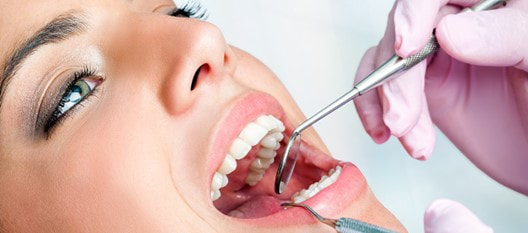

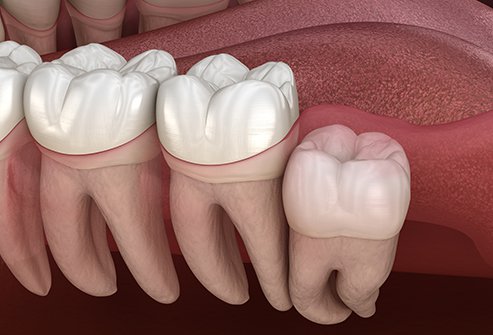
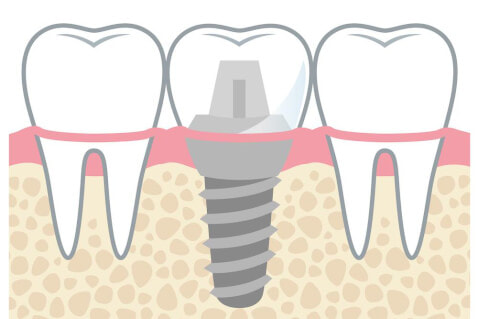






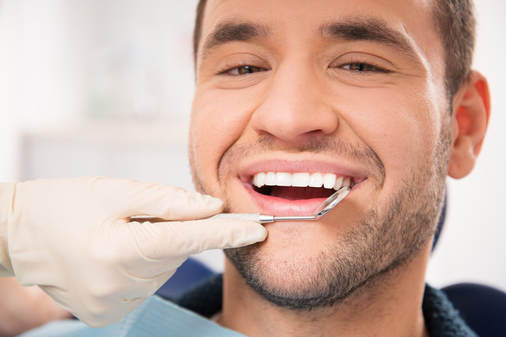
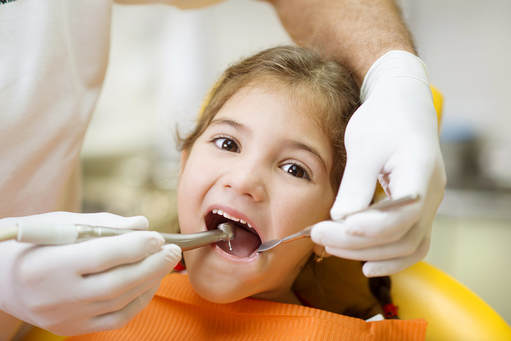
 RSS Feed
RSS Feed